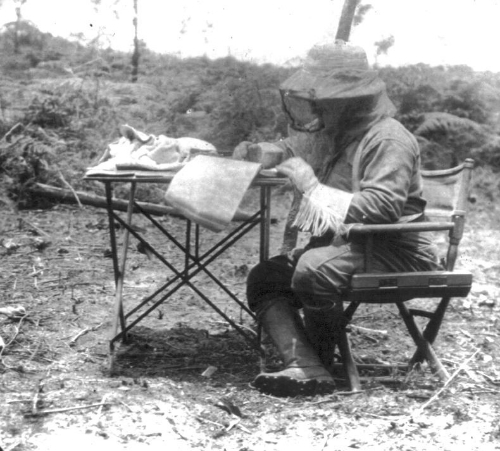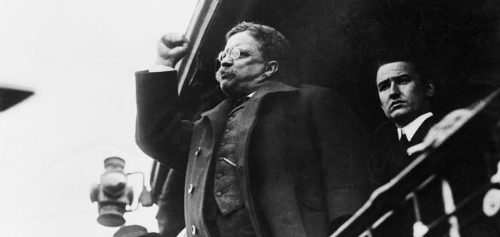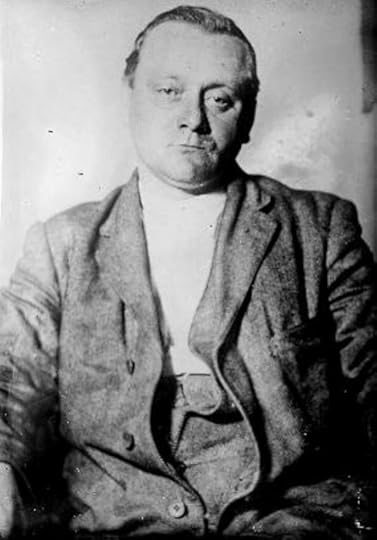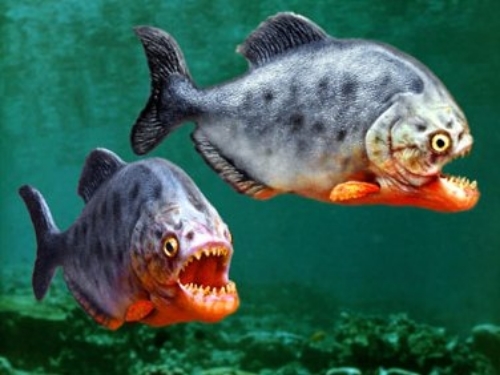What do you think?
Rate this book


416 pages, Paperback
First published October 18, 2005
”In Xanadu did Kubla Khan
A stately pleasure-dome decree:
Where Alph, the sacred river, ran
Through caverns measureless to man
Down to a sunless sea."
Samuel Taylor Coleridge









When it comes to parasitizing people, a very rare occurrence, the candiru’s modus operandi is to enter through an orifice – from a vagina to an anus…The potential danger for the men on the River of Doubt came not just when they swam in the river but even when they urinated in its shallow waters. Instances of candirus parasitizing people are rare, but in the one case in which a doctor fully documented his removal of a candiru from a young man, the victim’s explanation of how the fish had entered his urethra was nearly as shocking as the fact that it was there at all…In this case… the victim reported that, just before the attack, he had been standing in a river urinating, but the water had reached only his upper thighs, and his penis had not even touched the river, much less been submerged in it. The candiru, he claimed, had abruptly leapt out of the water, shimmied up his urine stream, and disappeared into his urethra.

A man may be a pleasant companion when you always meet him clad in dry clothes, and certain of substantial meals at regulated intervals, but the same cheery individual may seem a very different person when you are both on half rations, eaten cold, and have been drenched for three days—sleeping from utter exhaustion, cramped and wet.


If rejection was new to Roosevelt, loss & disappointment were not. He had already lived an extraordinarily full life. Perhaps even more striking than the peaks & valleys of Roosevelt's life was the clear relationship between those extremes--the ex-president's habit of seeking solace from heartbreak & frustration by striking out on even more difficult & unfamiliar terrain, and finding redemption by pushing himself to his outermost limits.There is of course an ample attempt to catalogue this particular journey, with commentary from T.R.'s journals but what I found most memorable (though largely forgotten from the 1st reading) was the description of the person to person & group dynamics among Roosevelt, his son Kermit, a team of naturalists & others + the heroic Brazilian leader Candido Rondon & his fellow comrades. This was after all, a sponsored scientific expedition but not the one T.R. had signed on for.
When confronted with sadness or setbacks that were beyond his power to overcome, Roosevelt instinctively sought out still greater tests, losing himself in punishing physical hardship & danger--experiences that came to shape his personality & inform his most impressive achievements.

For Roosevelt, Rondon represented the kind of man he had championed throughout his life: a disciplined officer who thrived on physical challenges & hardship and who accomplished great feats through sheer force of will. It would be a measure of his profound respect for Rondon that, years later, Roosevelt would count the Brazilian officer among the four greatest explorers of his time--alongside Roald Amundsen, Richard Bird & Robert Peary.The author surveys T.R.'s philosophy as drawn from his nature & his reading of human history, proving the need for vindictive principles merged with assertive action, even when the action might cause bloodshed or conflict. By contrast, Rondon, who had spent a life on the edge of Brazil's frontiers & at the margins of society, had gained a deep mistrust of quickly rendered solutions & a determination to respect the workings of law, even when there was no definitive law to be applied. To Rondon, the author ascribes "a pacifist's idealism that would ultimately secure him a place not merely as Brazil's greatest explorer but as one of its pioneering social thinkers."
From his vantage point on the shaded forest floor, Roosevelt stood far below much of the unceasing evolutionary combat. Crowded with broad-leafed trees, crowning vines & epiphytes, as well as the hundreds of insect & animal species that rely on them, the upper canopy is difficult to see from the ground, except in the rooflike function that its name implies.
By shading everything below it, the canopy helps to obscure much of the activity that takes place in the understory, or middle life of the rain forest. While sunlight from the open river made the shoreline an almost impassable wall of trees, vines & dense underbrush, once the barrier was breeched the dark interior of the jungle, broken only by occasional gaps in the canopy & a scattered, speckled light, revealed a labyrinth of tree trunks & vines but little else.
